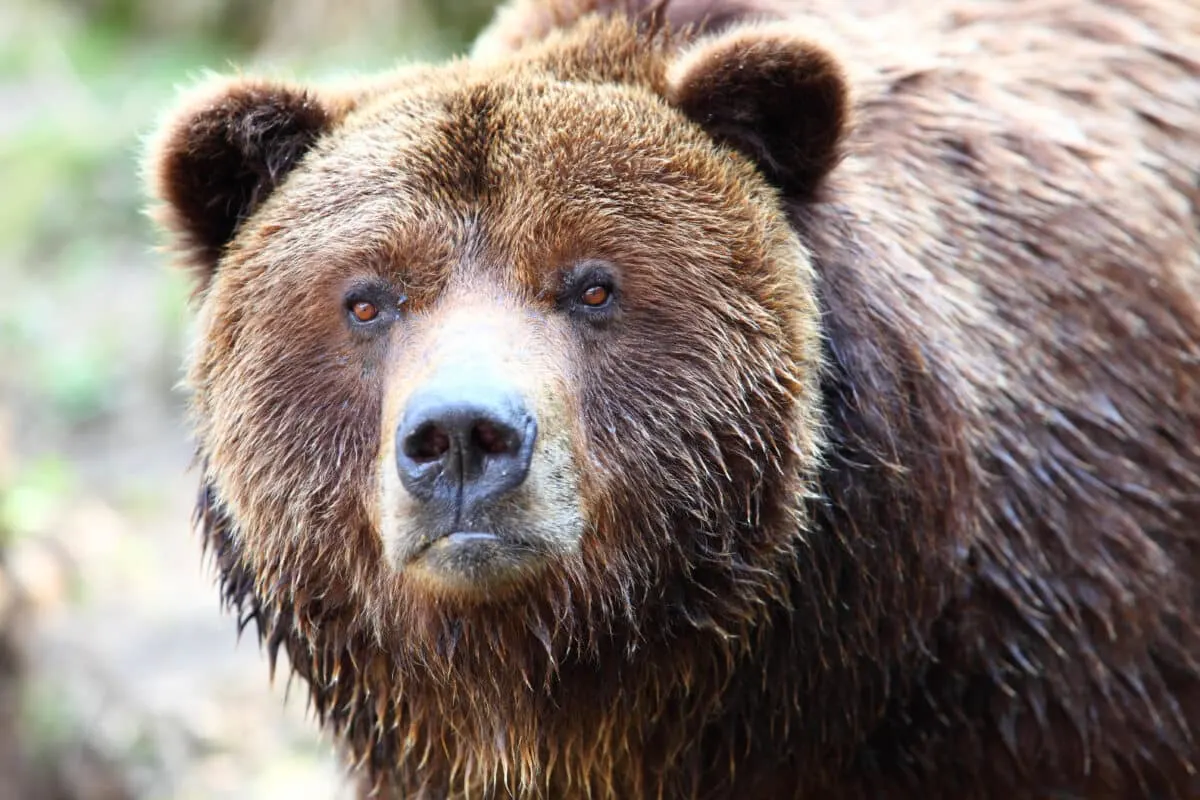Yes, you heard correctly, a 1000-lb Brown Bear, which translates to 453 kg, was spotted roaming through Alaska on the hunt for Salmon.
From claws to snout, it’s easy to spot that it’s no regular bear, making most, if not all, of its adult counterparts look like a pony to a horse. Yet it manages to catch Salmon with relative ease, showcasing its quick and nimble abilities – try make a 1000-lb human do that.
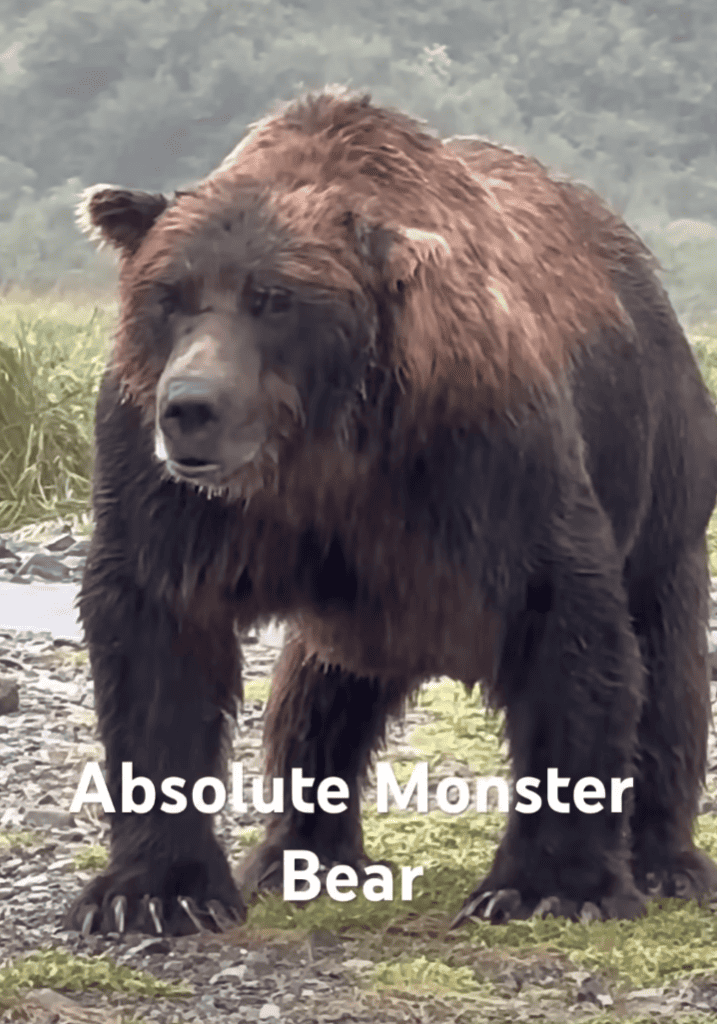
To put 1000 lb into perspective, it’s equivalent to seven cubic feet of concrete and double the weight of the late French professional wrestler André the Giant, who was so large that he was dubbed ‘the Eighth Wonder of the World.’
Read to the end to watch the video!
Average Weight:
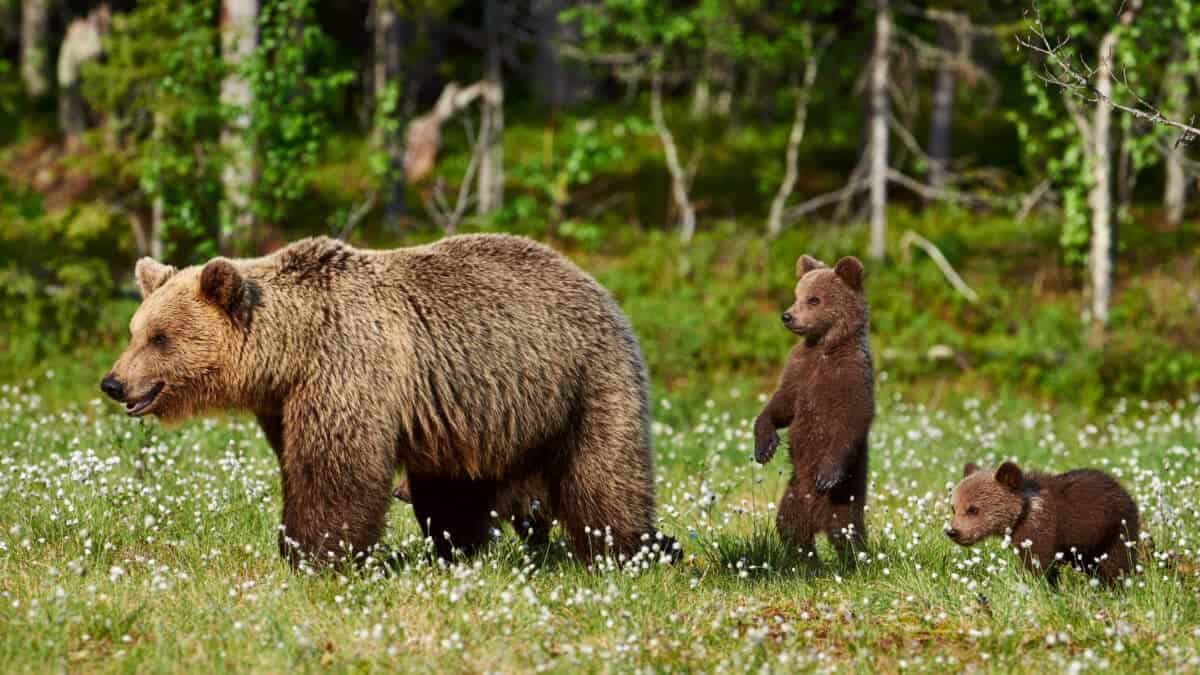
Brown bears in Alaska are among the largest bears in the world. Adult males typically weigh between 600 and 1,000 pounds, with some exceptional individuals exceeding this range. Females are generally smaller, but they can still weigh several hundred pounds.
These bears’ massive size is a testament to their adaptation to the rugged Alaskan landscape and their ability to procure enough food to sustain their immense bodies.
Factors and Conditions Overcome in Alaska:
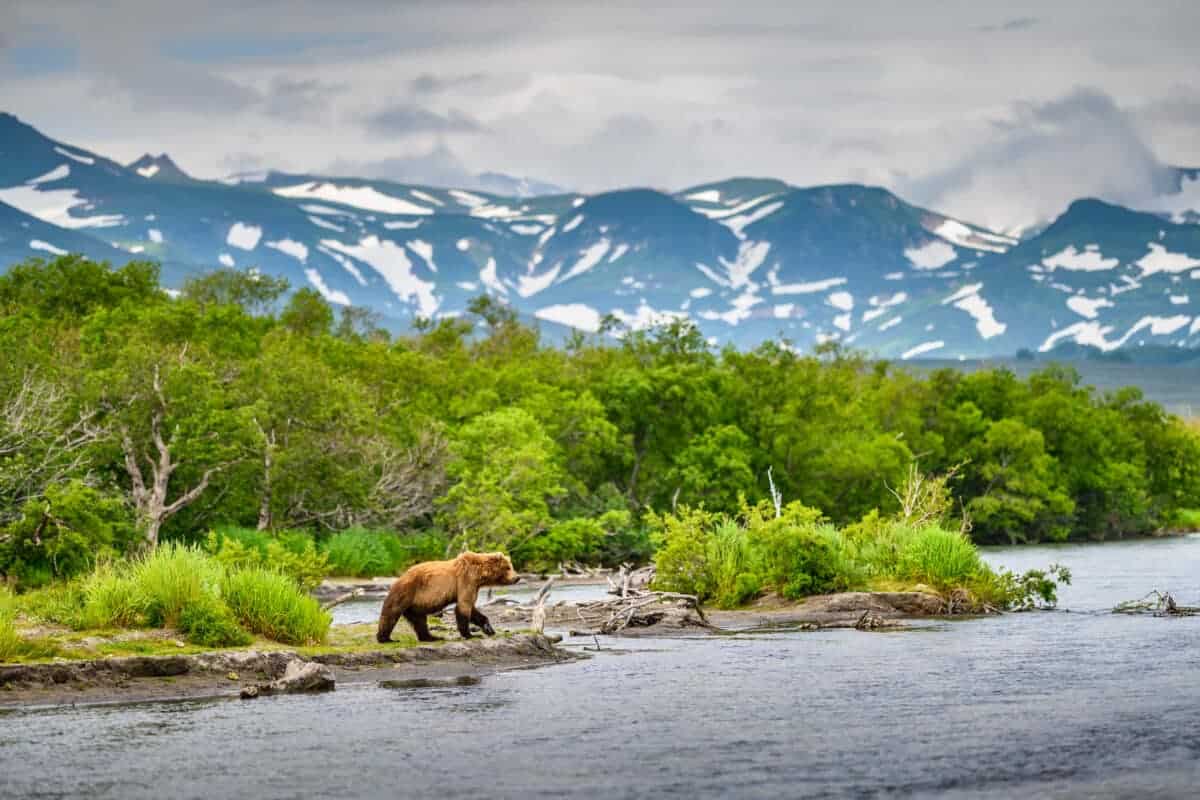
via Depositphotos.
Alaska presents numerous challenges for brown bears, but these resilient creatures have evolved remarkable adaptations to thrive in such harsh conditions. One of the primary challenges they face is the harsh climate, characterized by long, cold winters and short, intense summers.
Despite the extreme temperatures and limited food availability, brown bears have developed thick fur coats and layers of insulating fat to protect them from the elements. Additionally, they have keen senses and impressive strength, which enable them to navigate rugged terrain and compete with other predators for food resources.
Diet:
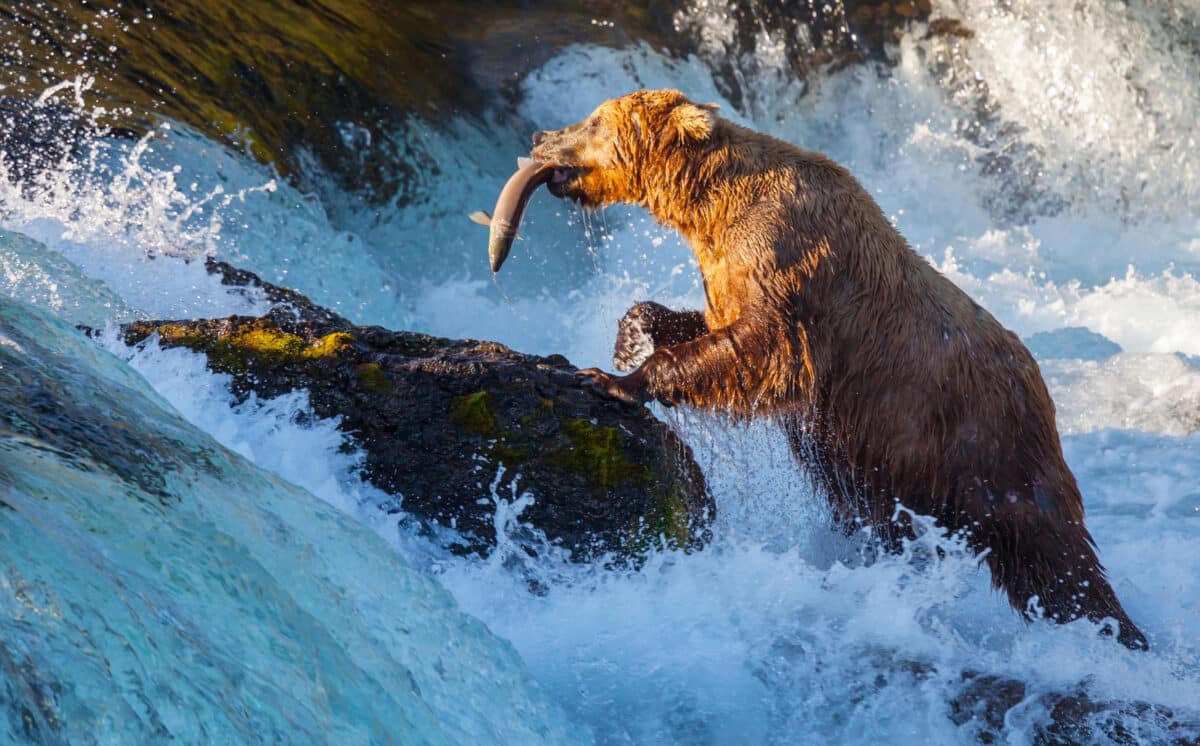
Brown bears in Alaska are opportunistic omnivores, meaning they will eat a wide variety of foods depending on what is available. During the warmer months, their diet consists mainly of vegetation such as berries, roots, grasses, and nuts.
However, their diet is predominantly carnivorous, and they are particularly adept at catching salmon during the annual salmon runs. This rich food source provides brown bears with the necessary nutrients to survive the winter months when food is scarce. Despite their formidable size, brown bears are surprisingly agile and skilled hunters, able to catch fish with remarkable speed and precision.
Hibernation:
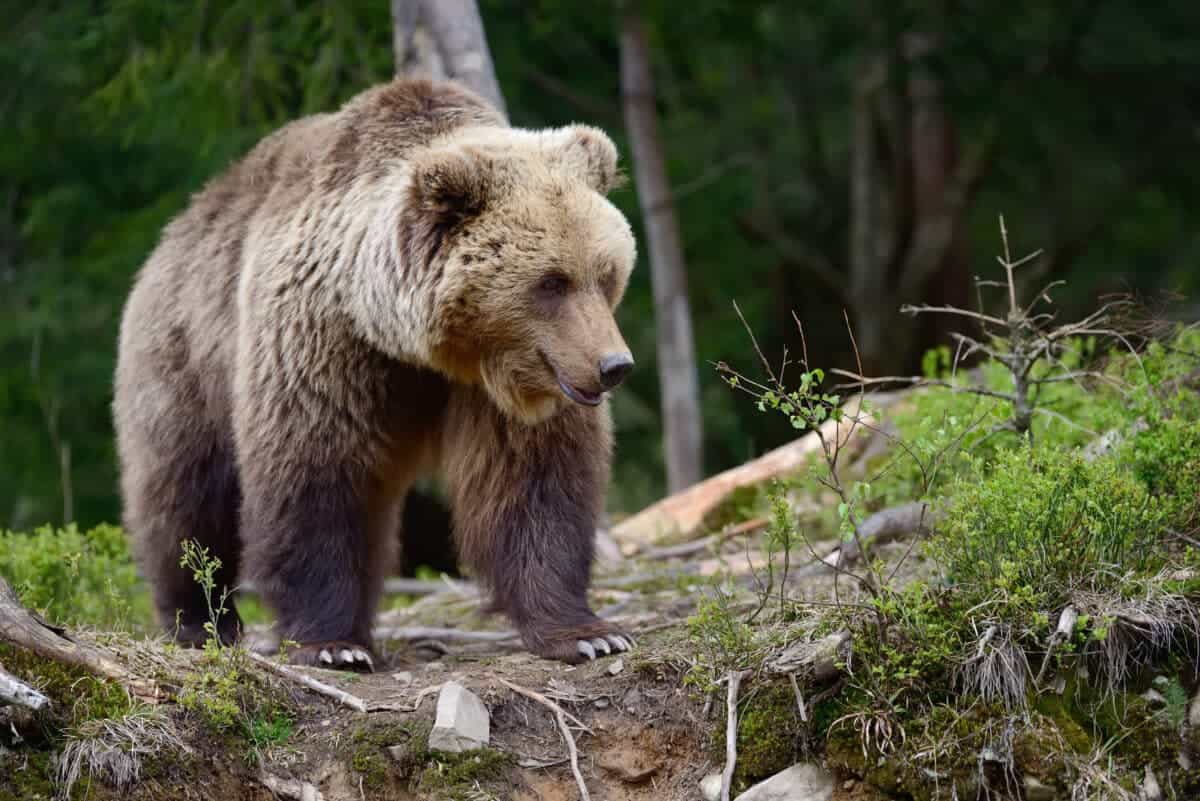
One of the most remarkable aspects of brown bear biology is their ability to hibernate through the long winter months. As temperatures drop and food becomes scarce, brown bears enter a state of dormancy to conserve energy and survive until spring. During hibernation, their metabolic rate decreases significantly, and they enter a state of torpor where they are less responsive to external stimuli. Brown bears typically build dens in secluded areas such as caves, hollow trees, or thickets, where they can safely retreat during the winter months.
Hibernation can last anywhere from four to six months, depending on environmental conditions and the bear’s individual health and nutritional status. Despite the challenges of hibernation, brown bears are remarkably well-adapted to this lifestyle, and it plays a crucial role in their survival in the harsh Alaskan wilderness.
Enjoy the Sight of an 1000-lb+ Bear Going About Its Day
Brown bears in Alaska are truly remarkable creatures – with this agile 1000-lb bear being a prime example – capable of overcoming incredible challenges to thrive in one of the world’s most unforgiving environments. From their massive size and strength to their diverse diet and ability to hibernate through the winter months, these bears are a testament to the resilience and adaptability of nature’s most iconic predators.
If you enjoyed this piece, you may enjoy these:
- Watch: Bear Casually Walks Past Tourists in Alaska’s Katmai National Park
- Bear Embraces Man
- Curios Black Bear Tastes Car
Join our Forum for free today!

- Second American Killed by Elephant in Zambia This Year - July 22, 2024
- Elderly Man Kills Grizzly Bear in Montana - July 22, 2024
- Missing Cat Found Weeks Later, 40 Miles Away - July 21, 2024

